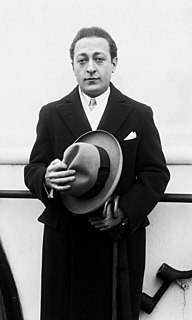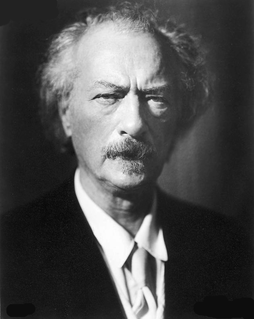A Quote by Louis Armstrong
If I don’t practice for a day, I know it. If I don’t practice for two days, the critics know it. And if I don’t practice for three days, the public knows it.
Related Quotes
Years ago, I heard an interview with violinist Yehudi Menuhin. The interviewer said, "Do you still practice?" And he said, "I practice every day." He said, "If I skip a day, I can hear it. If I skip two days, the conductor can hear it. And if I skip three days, the audience can hear it." Oh, yes, you have to keep that muscle firm.
It was hard to become an astronaut. Not anywhere near as much physical training as people imagine, but a lot of mental training, a lot of learning. You have to learn everything there is to know about the Space Shuttle and everything you are going to be doing, and everything you need to know if something goes wrong, and then once you have learned it all, you have to practice, practice, practice, practice, practice, practice, practice until everything is second nature, so it's a very, very difficult training, and it takes years.
We're sitting in here, and I'm supposed to be the franchise player, and we in here talking about practice. I mean, listen, we're talking about practice, not a game, not a game, not a game, we talking about practice. Not a game. Not, not... Not the game that I go out there and die for and play every game like it's my last. Not the game, but we're talking about practice, man. I mean, how silly is that?.. And we talking about practice. I know I supposed to be there. I know I'm supposed to lead by example... I know that... And I'm not... I'm not shoving it aside, you know, like it don't mean anything. I know it's important, I do. I honestly do... But we're talking about practice man. What are we talking about? Practice? We're talking about practice, man.
To think that practice and realization are not one is a heretical view. In the Buddha Dharma, practice and realization are identical. Because one's present practice is practice in realization, one's initial negotiating of the Way in itself is the whole of original realization. Thus, even while directed to practice, one is told not to anticipate a realization apart from practice, because practice points directly to original realization.
This is the practice school of writing. Like running, the more you do it, the better you get at it. Some days you don't want to run and you resist every step of the three miles, but you do it anyway. You practice whether you want to or not. You don't wait around for inspiration and a deep desire to run ... That's how writing is too ... One of the main aims in writing practice is to learn to trust your own mind and body; to grow patient and nonaggressive.

































